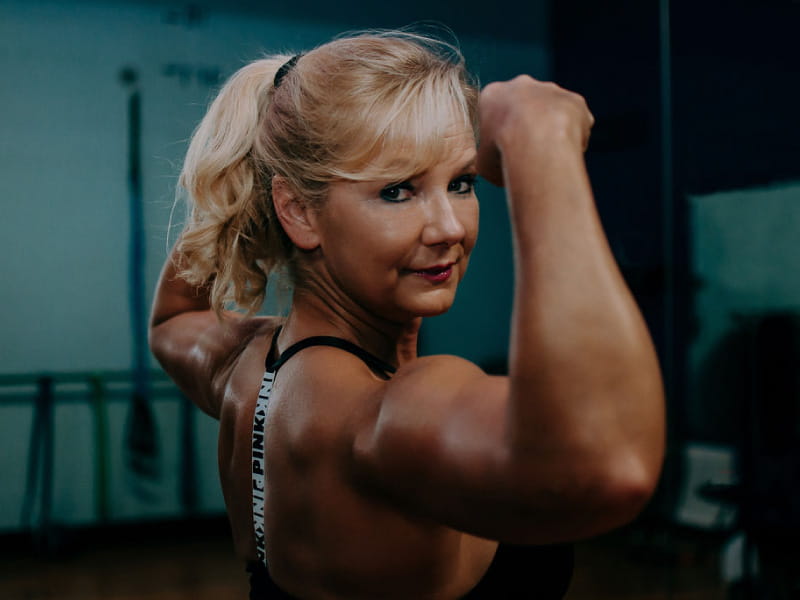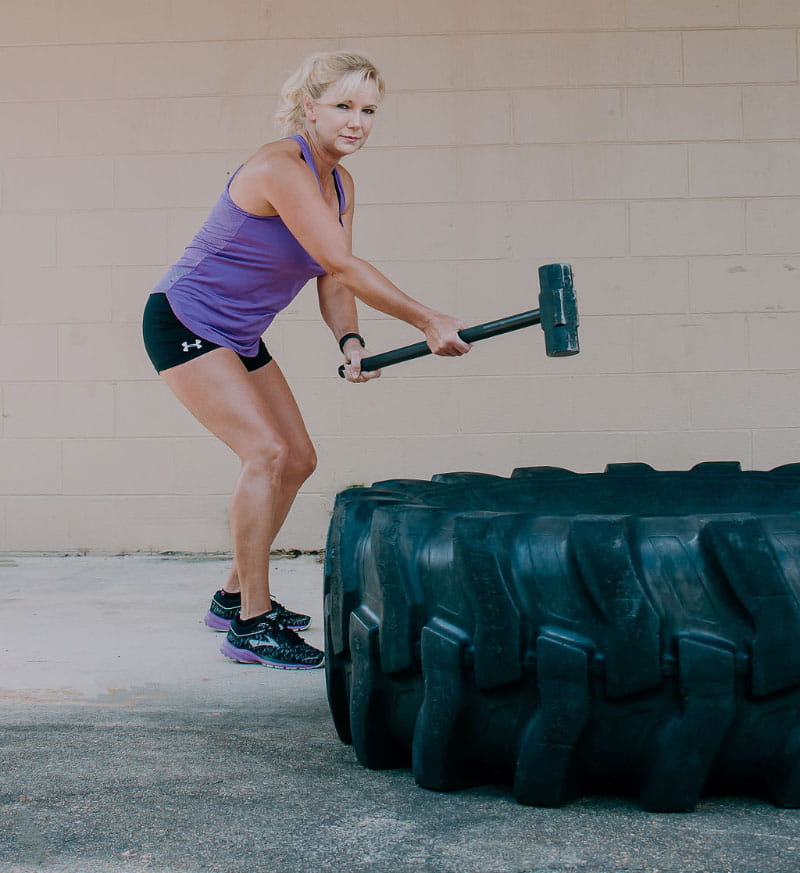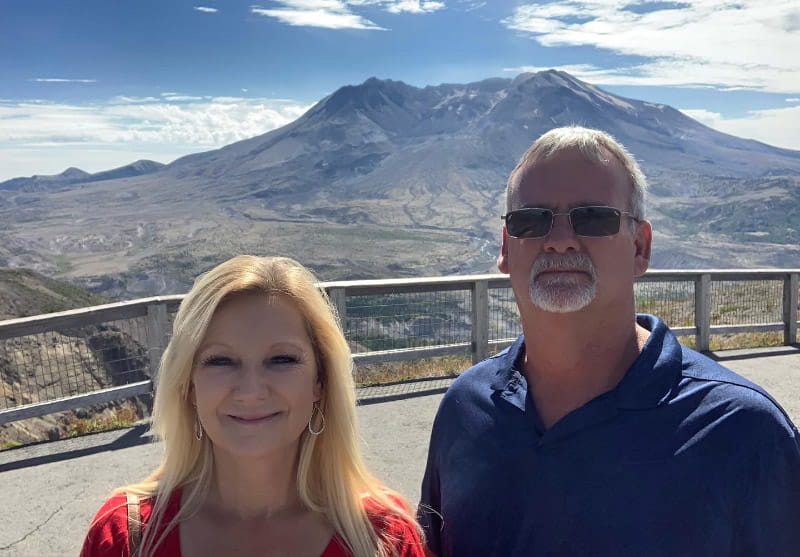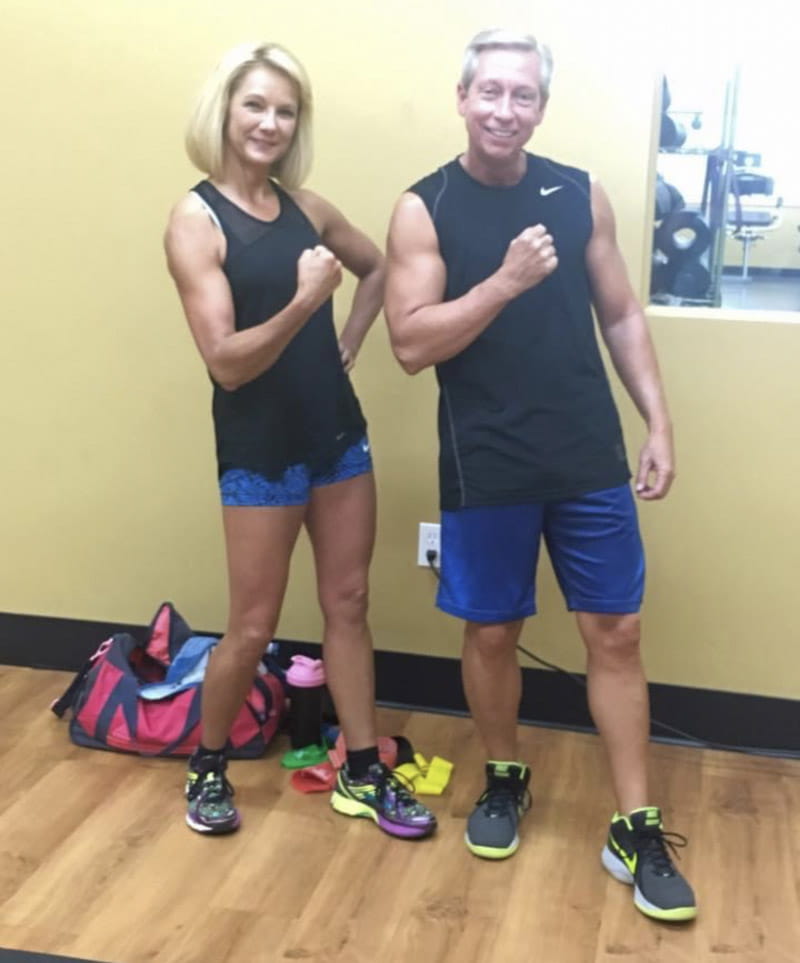Fitness instructor couldn't outrun family heart disease, but she could reduce the damage
By Diane Daniel, American Heart Association News

A few months before her 50th birthday, Angie Mayo and her husband, Carl, headed to Key West, Florida, for an early celebration.
She could use the break from the 12-hour shifts at her factory production job and all the time she put in at the gym near her home in Guin, Alabama.
Since becoming an empty nester about eight years before, Angie devoted herself to health and fitness. She became certified as a personal trainer and taught boot camp classes.
She worked at the factory from 3 a.m. to 3 p.m. to better fit her workout schedule. Sometimes the people in her classes were colleagues, mostly men. Boot camp included a challenge to see who could take the most whacks at a tractor tire using a sledgehammer. She usually won.

But even on vacation, she planned to exercise.
The first morning in Key West, Angie was out of the room by 6 a.m. for a run before it got too hot. Her breathing was so labored that she could only walk. She chalked it up to the high humidity.
The next day, July 4, 2019, Angie woke up feeling pressure on her chest. She couldn't take a full breath. Her jaw hurt and she felt a pain in the back of her throat, as if someone had taken a knee to it and kept pressing.
They spent the holiday resting in the hotel instead of going to the beach. The next morning, they began the two-day drive home. On the way, she called her doctor to discuss what happened and make an appointment.
"If you think you're having a heart attack. Go to the emergency room now," the doctor said.
Angie didn't think that was possible for someone as fit as her. Still, she knew she had a family history of heart disease. In fact, genetics was one of her motivators for staying in top form.
When Angie's father was 45, he had three stents implanted to open his clogged arteries. Her mother had a heart attack when she was 53. All Angie's grandparents had heart issues, and one grandfather had died during a stress test.
A few days after she and Carl returned from Florida, Angie saw her doctor. All tests came back normal. But because of her family history, the doctor referred her to a cardiologist in a bigger city.
At the appointment, two weeks later, the cardiologist couldn't find anything wrong. He recommended she get a CT scan of her heart to look for calcium buildup in the walls of her arteries. This was important because such buildup can become the blockages that cause a heart attack.
After the scan, Angie and Carl were called into the doctor's office.
"Mrs. Mayo, you have an alarming amount of calcium in your arteries," he said. "It's so high it's not even on our charts."

The next day, she underwent a cardiac catheterization procedure, a non-invasive way for doctors to get an inside look at the heart. If necessary, they could implant stents to open any blockages.
Doctors found so many blockages they ended the procedure. Instead, she needed bypass surgery.
"You mean you're going to have to cut me open?" she asked.
"I'm afraid so," the doctor said.
Angie shared the news with Glen Jenkins, her close friend and fellow fitness instructor. Around the gym, they were known as "the dynamic duo."
"I couldn't imagine that she was going to have open-heart surgery. It was mind-boggling," he said. "She was so meticulous about everything she ate, and she was in amazing shape."
The next day, Angie had a quadruple bypass. She was the talk of the cardiac floor.
"You're the fitness instructor!" several nurses said.
"The only reason you're still alive is because your heart is so strong," the surgeon told her.
Angie was out of work for three months. She was able to switch from the job that required heavy lifting to a position in safety education, though it does require some travel.
Her story inspired co-workers and gym mates to reconsider their diets and get heart checkups.
"Everybody was freaked out," she said. "I had people calling me wanting to know what tests they should have."
After a grueling three months of recovering from the surgery, Angie never went back to running, though she does enjoy walking. She slowly started working out with weights and teaching yoga and abdominal workouts. She also discovered a new passion – golf.
In July 2022, Angie again experienced pain in the back of her throat. This time it was accompanied by a stabbing sensation in her left shoulder blade.
At the hospital, she told them she was a heart patient – even though she didn't look like one.
Bloodwork showed she'd had a heart attack. This time, she was able to get stents – five of them.
In May, the pain returned to the back of her throat. She received another two stents.
Doctors are optimistic that they've cleared all the blockages, but, if not, Angie is prepared. She takes medication, carries nitroglycerin, which relaxes the coronary arteries and other blood vessels, and knows that her cardiologist is a call away if she's on the road.
Her competitive drive is back in full force on the golf course, a sport she also shares with Jenkins.
"Angie's still in great shape, and she has a very positive outlook, which definitely helps," he said. "But if there's a problem, I know exactly where her nitro is."

Stories From the Heart chronicles the inspiring journeys of heart disease and stroke survivors, caregivers and advocates.





